The pandemic has highlighted how vulnerable populations face additional health risks including exposure to Covid-19. Catherine Reilly speaks to sex workers, and those advocating for their welfare, about these challenges
In spring, when the Covid-19 crisis erupted, Zoe (not her real name) decided to stop meeting sex buyers and advertised video and phone sex only. She has continued with this practice due to health concerns and said that “clients accept this is my choice now”.
Nevertheless, since June, requests to meet have become more frequent. The “demand for online services is a lot less by now”, Zoe informed the Medical Independent (MI) by text message in mid-September.
During the national lockdown, sex workers oriented online “as much as they could”, said Ms Kate McGrew, a sex worker and Coordinator of Sex Workers Alliance Ireland (SWAI). But this was not an option for everyone – due to personal circumstances or privacy concerns. Most people have since returned to in-person sex work, stated Ms McGrew. She criticised the lack of State income support for sex workers and the fact SWAI was not included on the vulnerable persons subgroup of the national public health emergency team (NPHET).
A Department of Health spokesperson said SWAI was on its Covid-19 stakeholder mailing list (the vulnerable persons subgroup has now been stood down, as the work of NPHET subgroups is being “realigned” into various departments, organisations and bodies).
According to Ms McGrew, SWAI received “explicit written refusal for emergency funding from the Department of Justice who did give money to the abolitionist organisation here, Ruhama.
“They explicitly told us they won’t be funding us for as long as we talk about sex work as an economic activity as opposed to inherent exploitation of vulnerable people. It is pretty alarming for the Department of Justice to be making policy and funding decisions based on ideology as opposed to outcomes.”
She said while efforts were focused on ‘flattening the curve’, some people returned to working in “extremely risky” situations. To date, Ms McGrew said she was not aware of sex workers who had contracted Covid-19.
Ruhama, which “supports women in prostitution”, is aware of Covid-19
cases among its service-users.
Service Manager Ms Sheila Crowley told MI these cases were all related to direct provision accommodation. The organisation was connected to the NPHET subgroup through a HSE representative, who sits on the monitoring committee of the second national strategy on domestic, sexual and gender-based violence (of which Ruhama is a member).
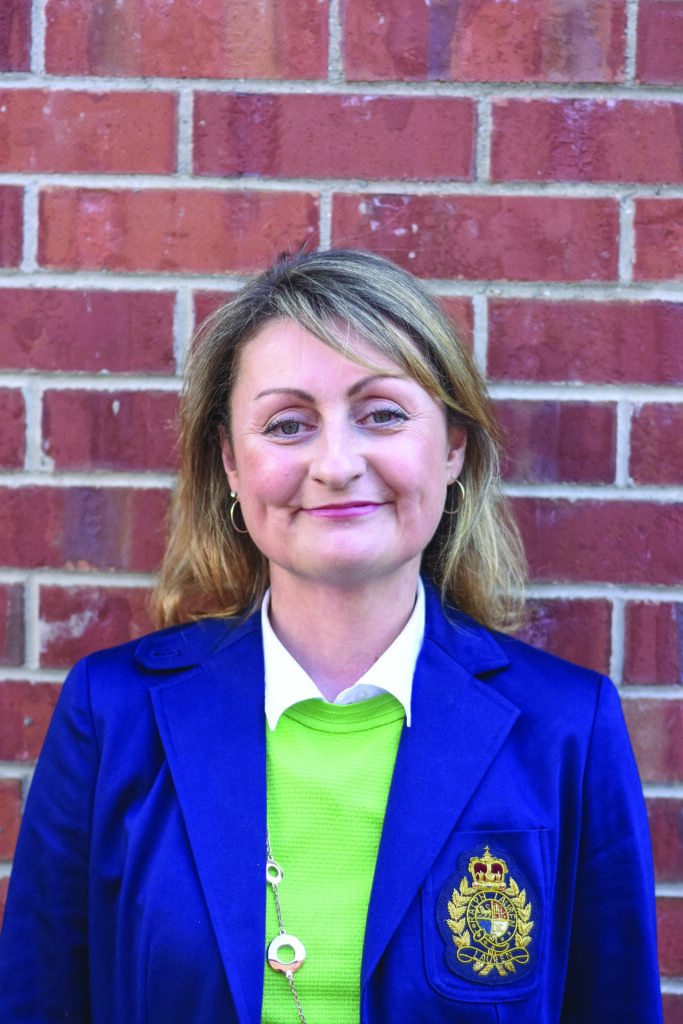
Ideologies
SWAI and Ruhama are key non-governmental organisations supporting people involved in sex work, although their approaches are rooted in vastly different ideologies. SWAI supports a harm reduction policy and advocates that sex workers “should be granted the same rights as all other workers”.
Ruhama supports criminalisation of the purchase of sex. It does not use the term ‘sex work’ (MI has used this term descriptively and because ‘sex workers’ is the wording in the national sexual health strategy).
Sex workers are not a homogenous group – some are doing it by free will; others have been coerced and trafficked. Some may have relative financial stability (‘Zoe’ told MI she has private health insurance), others are existing day to day, potentially living in addiction. Some are migrants, documented and undocumented, and others are Irish. There are male, female, and transexual sex workers. But all are at notable risk of contracting Covid-19 unless they work exclusively online. There have been no specific testing initiatives targeted towards sex workers.
A HSE spokesperson told MI data related to cases of Covid-19 associated with sex work was not collected by the Health Protection Surveillance Centre (HPSC). “To date, we are not aware of any clusters/outbreaks related to sex work,” they added. Meanwhile, sexual health services have been severely curtailed due to Covid-19, particularly walk-in clinics. This has led to broader concerns about a future upsurge in untreated sexually transmitted infections (STIs) – which often present asymptomatically.
Pandemic behaviour
During the pandemic, the behaviour of sex buyers has become “even bolder”, placing sex workers at additional risk, warned Ruhama’s Ms Crowley. “We have some women who are living in homeless accommodation and they would have been going out during the pandemic [national lockdown], they would have been seeing clients who would be outside in a car and they would go out and get into the car…. There is something about the pandemic that has made punters feel even bolder.”
Some women were asked for unprotected sex but offered far less money than would be usual. “The punters seem to be aware that the women who are selling sex during Covid are the women who really need the money. And they have been taking advantage of that. So our self-care group have been working with the women around putting more protection in place for themselves.”
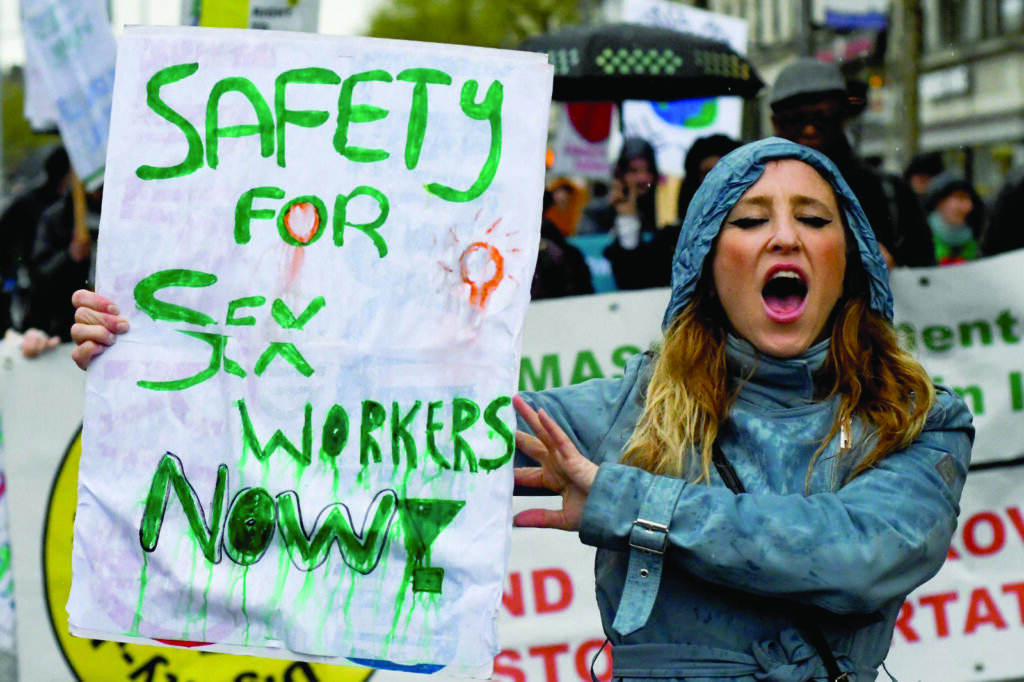
This virtual support group has attendances of up to 24 women at a time, according to Ms Crowley. As well as delivering care packages to women during lockdown – including condoms and lubricant – Ruhama was funded by the Department of Justice and Equality to distribute smartphones and tablets to women who did not possess a device, as many of Ruhama’s supports went online.
It also set up a virtual parenting group – a space where women “could be very honest about the frustrations of being stuck with children all day, without feeling that there was a social worker involved”, outlined Ms Crowley.
SWAI has also run virtual support groups and crowdfunded to assist sex workers in financial distress. “We were able to crowdfund a hardship fund of €26,000 and we were able to use that to give payments of €100-200 to 160 sex workers, which is good, but that really only boiled down to a few shopping trips,” said Ms McGrew.
SWAI has also worked with Gender Orientation Sexual Health HIV (GOSHH) and the Sexual Health Centre in Cork to develop and disseminate a harm reduction leaflet for outdoor sex workers.
If a sex worker is in a car, for example, they should turn off the air conditioning and leave the windows down. “Try to keep your faces away from each other, things like that,” explained Ms McGrew of the leaflet information.
Commenting on HSE support for sex workers during the pandemic, the Executive’s spokesperson referred to the Cork Sexual Health Centre’s #SafeRsexwork campaign, which provides a practical harm reduction guide for individuals undertaking sex work during the Covid-19 outbreak.
“This work was led by the Sexual Health Centre outreach worker and funding for this post is provided for by the HSE Sexual Health and Crisis Pregnancy Programme (SHCPP).
“In addition, the HSE community work department (HSE South) provided funding for the communications officer who designed, delivered and promoted this campaign.
“The HSE SHCPP included a link to this campaign on the ‘sex and coronavirus (Covid-19)’ information page which can be found here https://www.sexualwellbeing.ie/sexual-health/sex-and-coronavirus/.
“More information on the #SafeRsexwork can be found here: https://www.sexualhealthcentre.com/news/2020/4/9/the-sexual-health-centre-launches-safety-guide-for-sex-workers-during-covid-19.”
The spokesperson said work on the aforementioned leaflet for street-based sex workers was led by the operations manager at GOSHH and funding for this post is provided by the SHCPP. The HSE also operates the Women’s Health Service and the Anti-Human Trafficking Team and the Gay Men’s Health Service, where sex workers would be in the patient cohorts. It provides funding to Ruhama.
2017 law
The Criminal Justice (Sexual Offences) Act 2017 introduced a new offence of payment for sexual activity with a sex worker. It also removed the offence of public solicitation by sex workers. Brothel-keeping remains a criminal offence with increased penalties under the 2017 Act. A recent HIV Ireland-commissioned report found the law has had a profoundly negative impact on the health and wellbeing of sex workers. It proposed repeal of the law to protect sex workers’ health, safety, and wellbeing.
The report’s recommendations for healthcare included: Increased staff training; greater inclusivity in terms of mental health supports; expansion of peer-led sexual health screening services; and greater awareness of the role of HIV pre-exposure prophylaxis (PrEP) as an option for sex workers in managing health risks. Ms McGrew of SWAI said the law is associated with a myriad of concerns for sex workers. They fear disruption of income stream and being arrested “for working with a friend, because that is considered brothel keeping”.
“So what that means is that, at the very least, sex workers don’t want to raise any issue because they don’t want gardai knowing that they see clients, that they can have their clients taken off them. Then there is of course being arrested for ‘brothel-keeping’; there is a risk for some people of deportation, of being asked to quietly go home instead of being deported; there is risk of eviction; risk of having their children taken off of them.
“I mean, it was always legal to work alone so to say the law decriminalised us isn’t even true. SWAI pushed for an amendment to get decriminalisation of outdoor workers, and even for them, they are still getting gardai disrupting their work, pushing them into darker areas, and also falsely telling them it is illegal to work.”
When word gets around about garda raids “work quiets down, and we hear about girls taking clients that they are nervous about, we hear about girls dropping their prices. To outside people they think these are just inconveniences, but they are really dangerous for us – really legitimately dangerous changes in how we work.”
At Ruhama the law is seen as hugely positive. It rebalances power in favour of the sex worker, according to Ms Crowley. She said women are now more inclined to report rape, assault, and robbery (this is “anecdotal” and the organisation will compile statistics, she said).
Ruhama hopes the law will lead to a decline in sex purchasing. Research it commissioned suggests there may have been a 2 per cent drop in the number of men reporting that they would buy sex in Ireland. The legislation has made “a huge difference” to women on the streets, added Ms Crowley.
“They are often Irish women, they are often in addiction, and so they are much more aware that the guards are being nice, and maybe more protective of them rather than looking at them as a nuisance because they can no longer be charged.” The contention that the law impedes healthcare access “doesn’t make sense”, she said.
“Why would a law, when you are not in any trouble at all, make you not go and get healthcare? You have to remember, with the majority of our clients, they came to us because they felt they had been exploited in the sex industry…. I am not representing necessarily a woman who feels very empowered by prostitution and is earning a lot of money….
“I do feel laws won’t suit everyone, but with any law, you are trying to help the people who are most exploited in that situation.”
Ms Crowley, who has worked with Ruhama for ten years, said the trauma experienced by many women may not be immediately evident. “I always find it hard to find the ‘empowered sex worker’. I am not sure I have ever quite met one,” she added.
According to Ms McGrew, “people work in the sex industry on a spectrum of choice, circumstance and coercion”. She said the focus must be on “harm reduction models that make it as safe as possible”.
Most sex workers are mothers, some are putting themselves through college, buying houses, and saving to start a business. Others are working on a “survival” basis, paying for that day’s hostel, food or drugs, she said.
The HSE’s spokesperson said it was aware the Department of Justice and Equality was conducting a review of the law. The HSE “will participate in the review as required”.
Sexual health services
The pandemic has curtailed access to public sexual health services, fuelling concerns about significant untreated infection and further spread of STIs, particularly in at-risk populations. The HSE said many sexual health services re-opened in July/August. The remaining services “are preparing to re-open and will do so as (staff and physical) capacity allows”.
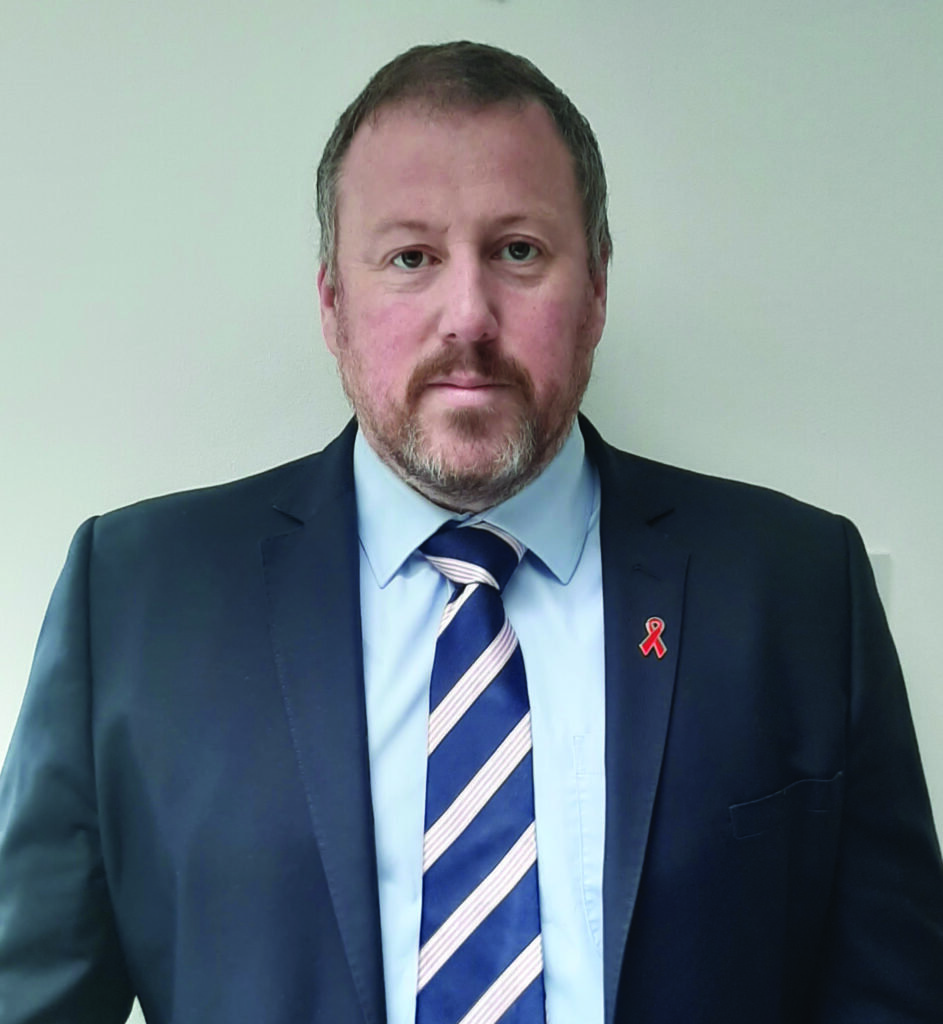
They added that all public sexual health services “continue to face service restrictions in light of social distancing requirements. In general, public sexual health services operate on a triage basis, which includes prioritisation of those on treatment, such as for HIV, to ensure continuity of care, or those who have symptoms of an STI and require treatment.
“Services are working hard to get through any backlogs/waiting lists, or providing catch-up services, eg, vaccines, where clinic space is available.”
There has been a notable reduction in STI notifications this year, according to the most recent HPSC summary report (week 37, 2020). For example, the report showed a 27 per cent decrease in chlamydia cases so far this year, compared with the same period of 2019; a 23 per cent decrease in gonorrhoea; and a 31 per cent decrease in syphilis (early infectious).
HIV notifications reduced by 6 per cent. In contrast, HPSC data from late 2019 indicated that STI and HIV notifications were rising from the previous year.
Since May/June, there has been a “small but steady increase” in most of the STI notifications as restrictions eased, according to the HSE. “As the data is provisional at this time, we will continue to monitor the situation to determine whether it reflects a true indication of declines in STIs or delayed diagnosis/notification.”
Testing
Executive Director of HIV Ireland Mr Stephen O’Hare believed less testing was a key factor behind the data showing sizable STI reductions.
“It is very difficult to say that because [social venues] are closed, people are not getting together or hooking up or not engaging in sex work through the pandemic – we don’t have that data, but what we do know is there’s no testing or very limited amounts of testing.”
It is very difficult to say that because [social venues] are closed, people are not getting together or hooking up or not engaging in sex work through the pandemic – we don’t have that data, but what we do know is there’s no testing or very limited mounts of testing
It is unclear why HIV notifications have remained relatively steady and a clearer picture may form in the coming months.
HIV Ireland runs the MPOWER Programme, which is a suite of peer-driven community-level interventions aimed at reducing acquisition of HIV and STIs and improving sexual health and wellbeing among gay, bisexual and men who have sex with men (gbMSM). The HSE also provides funding to this programme.
A member of the MPOWER team, who is originally from Brazil, works with migrants from South America who are gbMSM, including some sex workers.
Mr O’Hare said this illustrated the need for a broader understanding about who is engaged in sex work and who is buying sex in Ireland.
“There are multiple genders working in sex work -there are trans sex workers, male and female sex workers in Ireland, of different ages, of different nationalities and of different sexual orientations.”
Mr O’Hare said Covid-19 has impacted the roll-out of a national PrEP programme to groups at greater risk of HIV. He noted that the criteria for accessing PrEP tends to focus on MSM. However, other people can also qualify if they are deemed at greater risk of contracting HIV. Sex workers engaged in heterosexual sex are unlikely to qualify for PrEP unless they disclose their status as a sex worker, and HIV Ireland research has indicated a reluctance among sex workers to reveal this information to healthcare professionals.
At SWAI, Ms McGrew is aware of a female sex worker whose client removed the condom during sex (known as ‘stealthing’) and who attended a hospital to access HIV post-exposure prophylaxis (PEP), which is available from emergency departments and clinics. However, she did not want to reveal herself as a sex worker and did not receive PEP.
“She is an undocumented migrant,” stated Ms McGrew. “She went to get PEP and they wouldn’t give it to her because she was female and she was afraid to tell them she was a sex worker.”
This type of occurrence underlined the need for more training in healthcare, according to Mr O’Hare. Such services must be delivered in a manner that is “very non-judgemental” and “based on harm reduction”, he added.
Ms Crowley of Ruhama also expressed serious concern about the curtailment in drop-in sexual health services, particularly for women not already linked to service-providers such as Safetynet.
When women are linked to Ruhama, it can try and arrange financial support so they can access a private clinic. “But the problem is, it is really about accessibility. What if somebody wants a termination and they can’t get the test in the first place?
Views from the frontline of sexual health
“We certainly cared for those who self-identify as sex workers during the Covid pandemic,” confirmed Dr Cathal Ó Broin, Consultant in Infectious Diseases and General Internal Medicine at St Vincent’s University Hospital in Dublin. Dr Ó Broin is the Clinical Lead for the Prevention Support Clinic, which is part of the hospital’s PrEP and sexual health service.
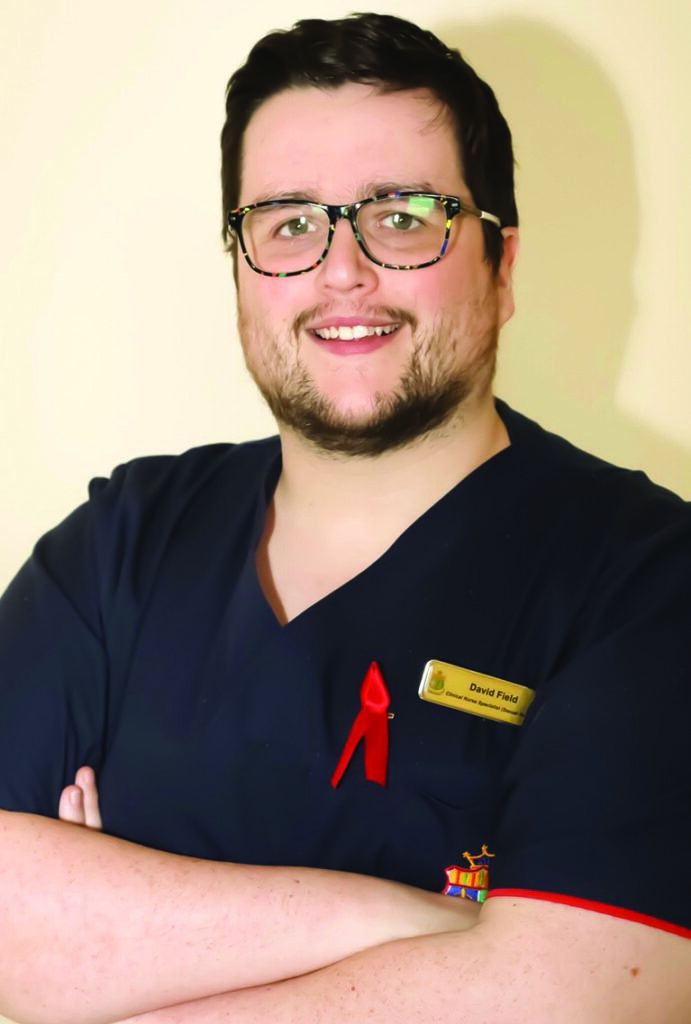
“This was very much a collaborative effort between St Vincent’s University Hospital and the community outreach team at HIV Ireland, led by Adam Shanley,” he told the Medical Independent (MI).
“The community team identified persons with increased sexual health needs, primarily sex workers and those involved in chemsex and recruited them to our clinic.
“Diego Caixeta is a member of this team and has created excellent links with this group. As a result of his efforts we were able better support cis and transgender persons, men who have sex with men, migrants and those with disabilities. Furthermore, Diego was able to identify key persons within the sex worker community who act as advocates and promote sexual health.
“It was also noted by our service that drug use significantly increased during lockdown, much of this was due to self-reported anxiety and depression. We liaised with the Rialto Community Drug Centre who were able to provide phone counselling to those who needed it most. There is now an active, bilateral referral pathway.
“I think this project was successful as a result of the stronger interface between the community and the hospital. Diego will be working with us for one day per week from now on. His focus will be on improving accessibility, overcoming barriers to testing and increasing retention in services for minority populations. His role with us is supported by HIV Ireland and the Sexual Health and Crisis Pregnancy Programme.”
Asked about Covid-19 risk and symptom awareness among the sex worker population, Dr Ó Broin said: “Regarding Covid awareness, many of the sex workers insisted on appropriate hand hygiene and some reported mask use.”
Mr David Field, Clinical Nurse Specialist in Sexual Health and PrEP at the Mater Misericordiae University Hospital in Dublin, has observed that sex workers may face marginalisation on many levels.
“And because of the multiple impacts of marginalisation, they can find it even more difficult to access inclusive healthcare.” He emphasised that the Mater provides “a sex worker inclusive sexual health service”.
“I would see that, a lot of the time, sex workers would find it difficult to navigate the system…. It is about having an awareness and doing in-depth sexual health assessments to make sure that you are picking up maybe more vulnerable people so we can provide them with services.” Mr Field has sometimes perceived a reluctance among sex workers to disclose this information.
“Working in sexual health, disclosure and trust is something we would navigate quite a lot. But sometimes people are more hesitant, it might not be until their second, third or fourth visit before they will disclose that they are a sex worker….
“But without them disclosing that to us, it can be difficult to provide the most appropriate healthcare to them, so I would always try and have as open and honest a discussion in as non-judgemental a way as possible, letting them know they can disclose anything they want to me and that it is imperative really for me to be able to provide the best service to them.” Mr Field said PrEP clinical guidance facilitates access for sex workers outside the MSM categories, where they are identified.
“While the guidelines are geared towards gay, bisexual and other men who have sex with men, they allow for a certain amount of clinical judgement….
“If someone came into us and said ‘I am a female sex worker and I have sex with men’ that would absolutely be an indication that we start them on PrEP,” said Mr Field, emphasising the importance of a sex worker feeling comfortable disclosing this information.
The roll-out of the national PrEP programme has been impacted by the pandemic. “There is definitely decreased access to PrEP out there in the community at the moment, but I think different services have different approaches to correcting that.”
He confirmed the curtailment of sexual health services in many locations is a source of anxiety for healthcare professionals in this area.
“From a sexual health perspective, a lot of the infections we look for can be completely asymptomatic. Infections like chlamydia, because they are asymptomatic in nature, people will often have carried them and passed them on, and I think the fact there aren’t [usual] services there at the moment just allows infections to proliferate and for a larger pool of infections to develop in the community, which is obviously concerning to us in sexual health.”
In regard to improving access to sexual healthcare for sex workers, Mr Field suggests sex worker-specific training for sexual health services. He said dedicated clinic evenings or days, as part of an existing service, may warrant examination. Funding is one of the biggest challenges for sexual health services seeking to develop new approaches, he noted.
He confirmed that the law around sex work poses challenges for healthcare workers, in terms of sex workers’ reluctance to disclose information relevant to their care.
“I would always try to make it as clear as possible [to patients] that in healthcare our role is not to enforce a law or get into that kind of conversation. We are very much there to facilitate good sexual health and wellbeing.”
Regional view
Sex workers may be reluctant to disclose this status when presenting for sexual healthcare or may not attend regional services where they are operational, according to healthcare professionals specialising in sexual health in the north-east.
Ms Clio Milne, Clinical Nurse Manger 2 at Dundalk, Drogheda and Monaghan Sexual Health /Genito Urinary (GUM) services, told MI she had worked in the service for the past four years and had identified less than five sex workers in that time.

“I would have regularly asked service-users, indicating that if they were [a sex worker] I would offer additional swabs, vaccinations and condoms if required, but sex workers either do not attend our service, [or] do not identify themselves at the time due to fear of repercussions and/or stigma.”
“Discretion is key when people attend the service which all users should be aware of,” she emphasised.
Ms Debbie Marshall, Advanced Nurse Practitioner in Sexual Health at the service, also considered that sex work was not typically disclosed but added that her experience would be limited regarding this specific cohort. The service is “very confidential and non-judgemental” and proactive in following-up with vulnerable patients.
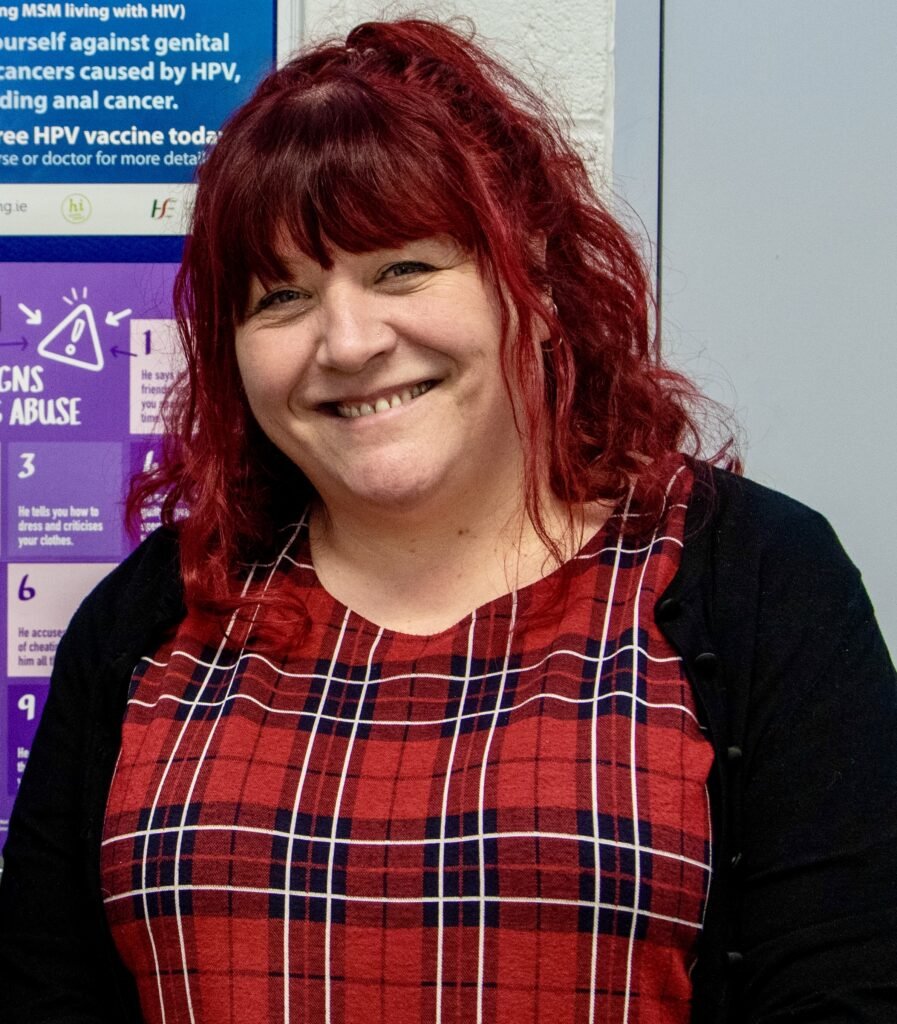
Ms Marshall, a forensic nurse examiner who has also worked in sexual assault treatment units (SATUs), added that sex workers who report a rape or sexual assault are more disclosing as they give their account of what occurred.
Asked how sexual health services could be further improved for sex workers and other at-risk and vulnerable populations, Ms Marshall said it was important to consult service-users and providers about their needs and to review past service provision. Many public services in Ireland do not offer clinics after 5pm or at weekends and numerous counties do not have a public STI service, she noted.
Ms Marshall underlined the importance of accessibility. She cited a Sláintecare-backed project providing sexual healthcare and clinics on campus at Athlone Institute of Technology.
The project was paused midway due to Covid-19 “but we achieved the outcomes of ‘right care, right place, right time’” and this concept could be applied to any at-risk/vulnerable group.
Ms Milne added that attending an STI screening service “already comes with its fears and trepidations for most people”. Therefore, a dedicated service specifically for sex workers “may not be the solution but an integrated service which can accommodate the specific needs of the individual could work at a more local level”.












Leave a Reply
You must be logged in to post a comment.